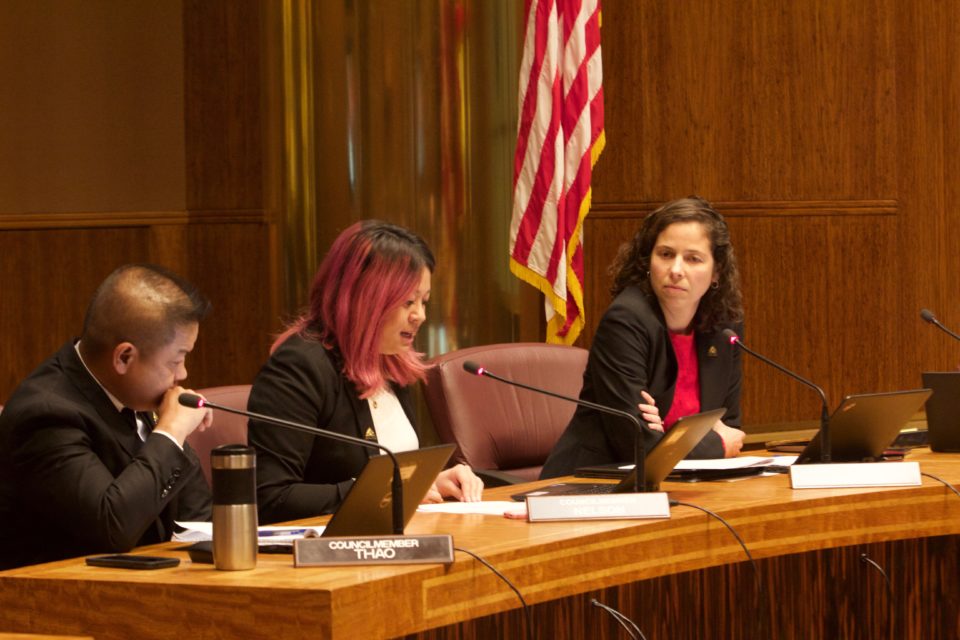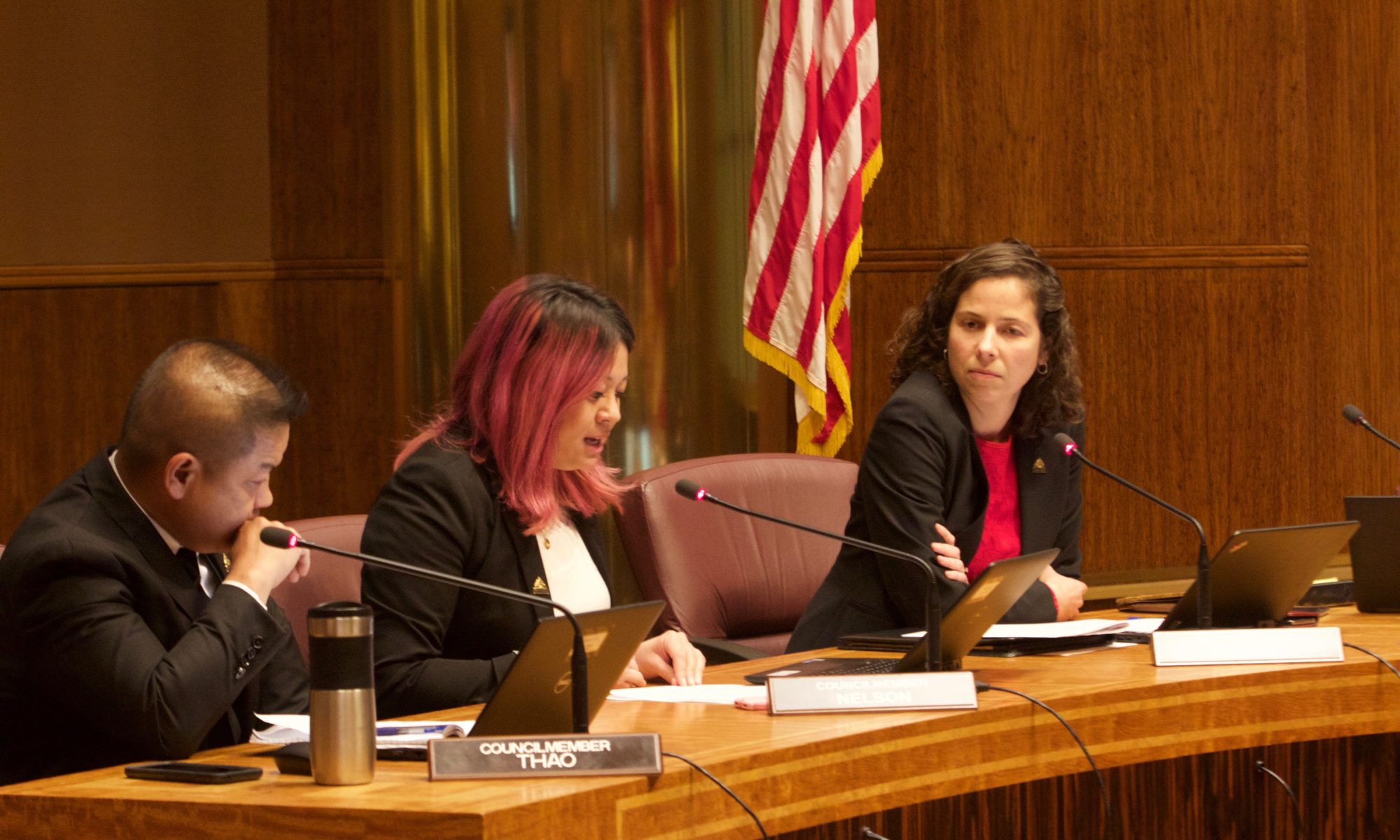
The St. Paul City Council passed a $15 minimum wage ordinance in a unanimous decision Wednesday afternoon. From left to right: Dai Thao Ward 1, Mitra Jalali Nelson Ward 4, Rebecca Noecker Ward 2. (Jack Stanek/TommieMedia)
The St. Paul City Council passed a $15 minimum wage ordinance Wednesday afternoon, mirroring its Minneapolis neighbors in a unanimous decision.
The ordinance is designed to phase in higher wages incrementally, increasing over a period of up to seven years depending on the size of the business.
Large businesses, including the University of St. Thomas, will increase minimum wages to $11.50 by July 1, 2020 and reach $15 an hour by 2023.
Mayor Melvin Carter made the ordinance a priority when he assumed office in January 2018.
“Today’s vote is the culmination of years of incredible leadership from council members, workers, business leaders and advocates, all working together to provide a much-needed raise to over 56,000 St. Paul workers,” Carter said in a statement. “I couldn’t be more honored to sign this ordinance into law.”
St. Thomas’s own Ward 4 council member Mitra Jalali Nelson spoke highly of the opportunities the “livable wage” will give to disadvantaged groups.
“Today’s ordinance is a strong and solid foundation from which I feel we can keep building toward prosperity,” Nelson said.
Citizens attending the council meeting met the decision with a standing ovation. One attendee raised a banner saying “Fighting to Live, Not Just Survive.”
Alexander Bourne, a resident of St. Paul’s East Side, sees the new code as an important lifeline for citizens struggling to get by on Minnesota’s current $9.65 an hour minimum wage.
“There is no better time than right now for the community to take charge of our community,” Bourne said.
A report drafted by the Citizens League outlined some concerns surrounding the new ordinance. Employers in educational institutions, small businesses and restaurants could encounter difficulties paying higher wages and are lobbying for employee exemptions in some cases.
The amendment only exempts city-approved youth programs and athletes employed by the St. Paul Saints, meaning universities and colleges will be required to raise wages for work-study positions.
“Because the institutions are committed to minimizing tuition increases, any wage increases affecting student employment would potentially need to be offset by a reduction in student work hours, student employment positions, or both,” the Citizens League Report wrote concerning the ordinance.
Michelle Thom, associate vice president for human resources at St. Thomas, said the university has no current plans to cut student workers, but it could eventually be a possibility.
“Every year is a little bit different in terms of the revenue we bring in based on the number of students that we admit and enroll each year,” Thom said. “We would have to review student employment opportunities against available budget.”
The new raise has split restaurant industry workers and business owners. Hundreds of them marched on City Hall in September to protest the ordinance.
Jeffrey Crandall, a bartender at the Eagle Street Grille, is a vocal supporter of a rejected proposal to establish a tip credit system. The proposal would have provided a guaranteed wage to service workers making less than $15 hourly including tips, but workers tipped more heavily would be exempted.
“What they’re doing is forcing business owners to give a raise,” Crandall said, “which restricts their ability to get that raise to the back-of-the-house non-tipped workers. The cooks, the support staff. We want the raise to go to them.”
Ward 2 Council member Rebecca Noecker addressed the concerns of these tipped workers.
“It is really important to me that we craft a policy that does not create an unfair playing field favoring restaurants with workers who make more than 20 an hour with tips … over other businesses where tipped workers don’t make that much or where they are not tipped at all,” Noecker said.
Ward 2 contains the most restaurants of all the wards in St. Paul.
This January, San Francisco became the first U.S. city to fully implement a $15 an hour minimum wage. St. Paul has joined the ranks of a growing number of cities, including Minneapolis, who passed their ordinance last year.
Deborah Rho, a St. Thomas economics professor, isn’t sure a $15 an hour wage will actually be effective in relieving poverty.
“I would say what most economists are worried about when either the minimum wage is increased or a new one is implemented is whether there will be an increase in unemployment,” Rho said. “Looking at real life data, the evidence has been really mixed on (whether) increases in minimum wage lead to high unemployment.”
Jack Stanek can be reached at stan5468@stthomas.edu.
Sawyer Rutan can be reached at sawyer.rutan@stthomas.edu.



